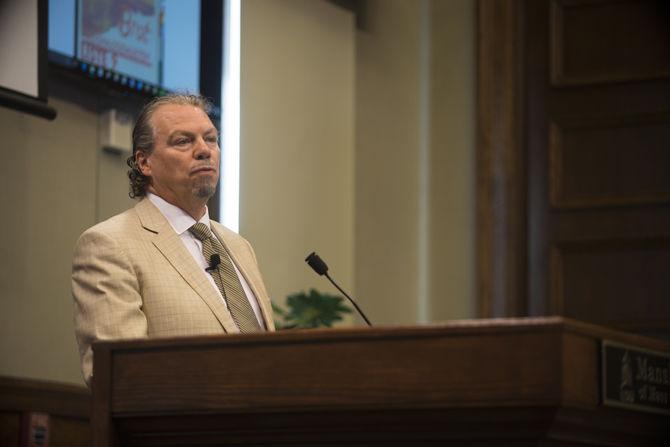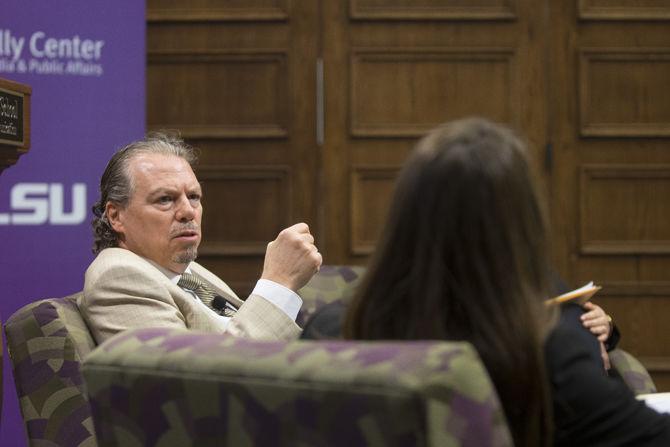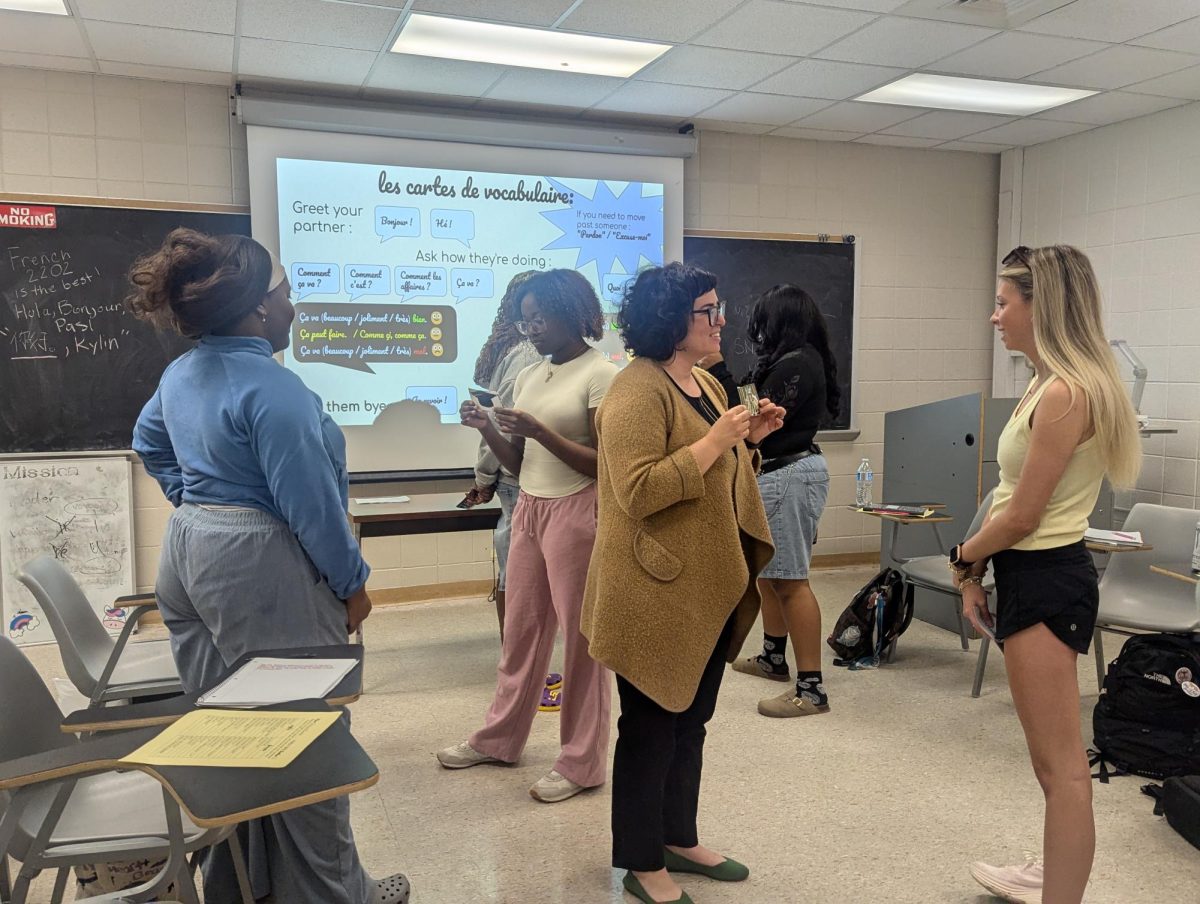In conjunction with the Jewish Studies Program, the Manship School of Mass Communication hosted two scholars in the Holliday Forum Wednesday to discuss what Manship School Dean Jerry Ceppos called “provocative” topics — political extremism and how Christianity is represented in Jewish culture.
The first speaker was Steven Luckert, a senior curator at the Levine Institute for Holocaust Education at the United States Holocaust Memorial Museum. Luckert discussed Nazi Germany’s use of propaganda as a method to garner support as a political party, and later, support for their anti-semitism, a topic he said is still relevant today.
“The more and more I think about [the use of propaganda], the more relevant this history becomes,” Luckert said.
Luckert presented a quizzical historical situation: How did the Nazi Party, which began as a small party in the 1920s with only 12 of 500 German parliament seats, grow to obtain almost half of the parliament’s seats? How was the Nazi Party able to win over and influence so many Germans within a matter of a few years?
The answer Luckert presented was the use of propaganda. By establishing a “brand” through the use of the swastika as a “logo,” appealing to target audiences through mass communication and practicing exceptional oratory skills, the Nazi Party was able to gain the support necessary to carry out the persecution of Jewish people and other non-Aryans.
Modern groups like ISIS, Luckert noted, use similar tactics to spread their message and increase membership, particularly by embracing people’s suffering and tapping into the need to resolve that suffering.
“We see that today if you look at a lot of extremist parties … they appeal to people who somehow feel disconnected or disillusioned with the status quo or their position in that society,” Luckert said.
Melissa Weininger, a senior lecturer at Rice University, discussed Jewish authors and how their work reflected the connection between Judaism and Christianity. Weininger said Jewish authors began to write about this connection to Jewish life and culture not out of negativity toward Christianity, but as a response to changes in Christianity itself. Weininger called this “Jewish backlash.”
Throughout the talk, Weininger discussed authors like Uri Tzvi Greenberg, a Hebrew and Yiddish writer whose work emphasized Jesus as a brother in Judaism and in suffering. Greenberg experienced persecution in present-day Poland. He and his family escaped being killed by Polish soldiers in 1918.
Weininger said different artists and authors worked to explore Jesus and other symbols of Christianity as a way to further understand Jewish culture.
LSU Jewish Studies Department holds talk in Holliday Forum
April 5, 2017
Dr. Steven Luckert speaks about the evolution of modern extremism on Wednesday, April 5, 2017 in the Holliday Forum at the Manship School of Mass Communication.
More to Discover










